Restorative Practices in Schools
Seminars & Workshops for Educators, Parents & Students
Introduction: The workshops offered are divided into three sections. The first section features seminars and workshops for educators, the second section is for parents/caregivers, and the third section is for students. The workshops are identified as introductory, intermediate, or advanced. The length for each workshop is also noted. Some workshops are offered in Spanish while a few have a pre-requisite. Be sure to check out the new RP 201 seminar and workshops offered.
2023-2024 RP Seminars and Workshops for Educators Parents Students Rev July 24 2023
Six Hour Seminars on Saturdays, 8:30 am to 3:30 pm
The two seminars are eligible for the MCS PD stipend.
Seminar RP 101: Introduction to Restorative Practices
“Restorative practices is an emerging field of study
that enables people to restore and build community
in an increasingly disconnected world.” —iirp.org
 Modesto City School’s administrators, certificated and classified staff are all encouraged to attend one of two six-hour seminars typically held on a Saturday from 8:30 am to 3:30 pm. RP 101: Introduction to Restorative Practices was created for employees interested in learning the basics of restorative practices in schools in one day with an emphasis on the practical – what you can do on Monday! Join hundreds of your colleagues who’ve enjoyed this training and have a much better picture of how they can implement restorative practices in their sphere of influence. Register with MCS PD.
Modesto City School’s administrators, certificated and classified staff are all encouraged to attend one of two six-hour seminars typically held on a Saturday from 8:30 am to 3:30 pm. RP 101: Introduction to Restorative Practices was created for employees interested in learning the basics of restorative practices in schools in one day with an emphasis on the practical – what you can do on Monday! Join hundreds of your colleagues who’ve enjoyed this training and have a much better picture of how they can implement restorative practices in their sphere of influence. Register with MCS PD.
NEW Seminar RP 201: From ACEs to PACEs –
Building Restorative Relationships
“Restorative practices, at their best, are part of a school culture that prioritizes culturally sustaining pedagogy and authentic relationship building — connections that allow for trust, openness and inclusive spaces.” –Cory Collins, 2021
Restorative Practices principles focus on intentional actions meant to emphasize the importance of building trusting relationships, improving existing relationships, and repairing relationships when harm has occurred. Many students come to school disconnected, lonely, isolated, and/or burdened by the effects of trauma and loss affecting their health, learning, and behavior. Although humans are hardwired with the desire to connect and thrive on healthy relationships, developing healthy relationships in our schools are often skipped.
RP 201 is a six-hour seminar that begins with research on loneliness, isolation, disconnected students, Adverse Childhood Experiences (ACEs) outcomes and their impact on learning, and the more recent research (2019) of Positive Childhood Experiences from Johns Hopkins. This foundation will be connected to restorative practices relationships. To accommodate different strategies for elementary and secondary students, some of the training will offer content simultaneously for elementary and secondary participants. Recommended pre-requisite RP 101: Introduction to Restorative Practices. Register with MCS PD.
Restorative Circles Workshops
NEW Building Community Using Circles and Picture Books (K-3rd grades) (Introductory)
Learn how your students can connect deeply and personally to the books they read. Using the restorative practices framework, educators can develop safe, supportive spaces in schools by creating community-building circles around picture books. This workshop for K-3rd grade educators begins with an overview of restorative practices in education, circle guidelines, community building circles basics, and connections to CASEL’s social-emotional standards.
Using social justice picture books, participants will experience the circles process and learn how they can engage students deeper into their learning through circles while holding meaningful and powerful conversations about how they felt as we read and listened to the story. Not only will participants walk away by understanding the process, but they’ll be equipped with the resources to replicate this powerful strategy in their own classrooms. Workshop Length: 1 hour
Introducing Restorative Circles: The Basics (Introductory)
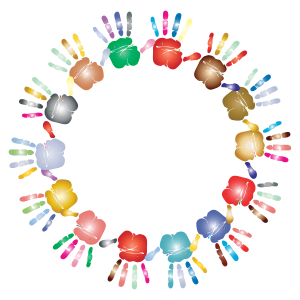 Whether building community culture, restoring relationship after harm, or delivering content, Restorative Circles are a fundamental tool used in the restorative process. A key principle in Restorative Practices is having a school community and environment to which students want to be restored. Restorative Circles are a well-known method used to build school culture, address harm caused in a school community, and convey content in a way that builds socio-emotional skills, empathy, and students conscious of the school environment and community.
Whether building community culture, restoring relationship after harm, or delivering content, Restorative Circles are a fundamental tool used in the restorative process. A key principle in Restorative Practices is having a school community and environment to which students want to be restored. Restorative Circles are a well-known method used to build school culture, address harm caused in a school community, and convey content in a way that builds socio-emotional skills, empathy, and students conscious of the school environment and community.
Participants will learn the basics of running a Restorative Circle in a classroom setting, develop and keep circle guidelines, and explore the importance of circle structure and methods. Workshop Length: 1 hour
Community Building Circles (Introductory)
 Teachers don’t have behavior management challenges; they have community relationship problems. The foundation of restorative practices is to proactively build relationships with students so that they can restore relationships by repairing harm when there are challenging behaviors. “We feel connected to other people when we sense that they see us, know us, and care about us. That’s what connection circles are about: being seen, being heard, being known, and developing affection.”1
Teachers don’t have behavior management challenges; they have community relationship problems. The foundation of restorative practices is to proactively build relationships with students so that they can restore relationships by repairing harm when there are challenging behaviors. “We feel connected to other people when we sense that they see us, know us, and care about us. That’s what connection circles are about: being seen, being heard, being known, and developing affection.”1
Community building circles focus on building healthy relationships and a culture of care in the classroom. Sample Prompting Circle Questions provided. During this workshop, participants will learn components and practice community building circles. Participants leave with actionable steps towards immediate implementation. Workshop Length: 1 hour
NEW Decision-Making Circles (Intermediate)
 Building upon, Introducing Restorative Circles: The Basics, this workshop continues developing circle skills through teaching circle formats for decision-making circles. Purposes, prompts for students, and follow-up prompts for decision-making circles provide the foundation of this workshop. Participants will create a respect agreement using decision-making circles. Basic Tips for Working with Difficult Dynamics is included. Participants will leave with knowledge and resources to utilize dialogue and decision-making circles to address these issues in their school community. Workshop Length: 1 hour
Building upon, Introducing Restorative Circles: The Basics, this workshop continues developing circle skills through teaching circle formats for decision-making circles. Purposes, prompts for students, and follow-up prompts for decision-making circles provide the foundation of this workshop. Participants will create a respect agreement using decision-making circles. Basic Tips for Working with Difficult Dynamics is included. Participants will leave with knowledge and resources to utilize dialogue and decision-making circles to address these issues in their school community. Workshop Length: 1 hour
Academic Content Circles (Intermediate)
 School faculty and staff regularly cite “lack of time” as a significant hurdle to implementation of circles amid high levels of demand in their positions. Learning circles utilize the structure and benefits of the circle format to convey and review classroom content. The workshop begins with purposes, benefits, and outcomes of content circles. Participants will practice using content to explore a topic, consider characteristics of prompting questions, and practice building sentence frames. Sample content circles questions included. Learning circles are a great way to engage both academic learning while also teaching valuable communication skills, empathy, and social-emotional skills. Workshop Length: 1 hour
School faculty and staff regularly cite “lack of time” as a significant hurdle to implementation of circles amid high levels of demand in their positions. Learning circles utilize the structure and benefits of the circle format to convey and review classroom content. The workshop begins with purposes, benefits, and outcomes of content circles. Participants will practice using content to explore a topic, consider characteristics of prompting questions, and practice building sentence frames. Sample content circles questions included. Learning circles are a great way to engage both academic learning while also teaching valuable communication skills, empathy, and social-emotional skills. Workshop Length: 1 hour
NEW Problem-Solving Circles (Intermediate)
 The culminating workshop in the circle’s series will use problem-solving circles for participants to address any problems or challenges they experienced in using circles in their classrooms by participating in a fishbowl problem solving circle. When something negative happens, such as something being destroyed, students being unkind to one another, students talking during instruction, etc., the teacher can use that opportunity to gather the class in a problem-solving circle. Tips for problem-solving circles and benefits of using problem-solving circles to resolve complaints is included. Participants will leave knowing how they can use problem-solving circles in the classroom. Workshop Length: 1 hour
The culminating workshop in the circle’s series will use problem-solving circles for participants to address any problems or challenges they experienced in using circles in their classrooms by participating in a fishbowl problem solving circle. When something negative happens, such as something being destroyed, students being unkind to one another, students talking during instruction, etc., the teacher can use that opportunity to gather the class in a problem-solving circle. Tips for problem-solving circles and benefits of using problem-solving circles to resolve complaints is included. Participants will leave knowing how they can use problem-solving circles in the classroom. Workshop Length: 1 hour
More Workshops for Educators
Restorative Practices in Schools (Introductory)
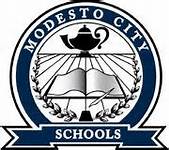 This is a perfect presentation for those new to restorative practices in schools. Zero tolerance and punishment that doesn’t work for many students has led to what’s now known as the school-to-prison pipeline. But there’s good news.
This is a perfect presentation for those new to restorative practices in schools. Zero tolerance and punishment that doesn’t work for many students has led to what’s now known as the school-to-prison pipeline. But there’s good news.
Modesto City Schools District’s LCAP (Local Control Accountability Plan) has included Restorative Practices as one alternative to decrease suspensions and improve school climate since 2013-2014. Restorative practices is described as holding students and staff accountable, and when necessary, making things as right as possible. Discover the paradigm shift from the traditional punitive approach to the restorative approach, principles of restorative practices and the restorative practices pyramid. Learn how restorative practices is changing lives of students and staff. Available in Spanish. Workshop length: 45 minutes
REVISED Changing Lenses: The Power of Restorative Practices (Introductory)
This workshop is based on change. Changing our lenses on how we view students, school discipline policies, and the power of restorative practices to change lives. This is the perfect workshop for presenting the big picture of restorative practices. Educators will examine school discipline policies that lead to the school-to-prison pipeline, the paradigm shift, restorative questions demonstration, an overview of restorative practices, including the 5Rs, how to change lenses, a look at California’s RP Paradigm Shift, and RP resources. The workshop includes Community Building and Dialogue Circles. Educators will leave with an overview of how restorative practices have the power to change the lives of both students and staff. Workshop Length: 1 hour
The Power of Affective Statements (Introductory) Elementary or Secondary
 This workshop introduces the most informal restorative response and the easiest tool for building restorative relationships. Affective statements are responses to others’ negative or positive behaviors. Educators learn the purposes of affective statements; ten characteristics of high-quality affective statements; and how to construct affective statements. Practicing the statements will provide educators a jump-start and discussion questions allow reflection on multiple aspects. Educators are challenged to use this new skill to develop the emotional literacy of students and improve school culture. Workshop Length: 45 minutes
This workshop introduces the most informal restorative response and the easiest tool for building restorative relationships. Affective statements are responses to others’ negative or positive behaviors. Educators learn the purposes of affective statements; ten characteristics of high-quality affective statements; and how to construct affective statements. Practicing the statements will provide educators a jump-start and discussion questions allow reflection on multiple aspects. Educators are challenged to use this new skill to develop the emotional literacy of students and improve school culture. Workshop Length: 45 minutes
Fine Tuning the Nuances of Restorative Questions (Intermediate)
You know the restorative questions. You use them with students and staff. But sometimes they feel awkward while at other times you get stuck. Is there anything else you can do? This workshop, Fine Tuning the Nuances of Restorative Questions, helps participants introduce restorative questions to students, effectively deal with students’ interruptions, use a conversational style, summarize the process and reach an agreement, and determine when to go beyond apologies. With practice time included, you’ll fine tune how effectively you use restorative questions with others. Workshop Length: 1 hour
Trainer Dr. Fritzemeier’s Favorite Workshop
Restorative Apologies, Beyond Just Saying, “Sorry.” (Introductory) Elementary or Secondary
 Do you know that insincere apologies can cause more harm than help? They are also ineffective in many situations. In this workshop, Restorative Apologies connects restorative questions with potential apologies. Rather than just saying, “I’m sorry,” which is often not genuine, participants learn how to help others make a full apology. Full apologies usually have three parts corresponding to verb tenses: past, present, and future. The 3-part model is easy to learn and implement. Tips on responding to repetitive apologies with no change in behavior and a computer program students can use to write apology letters are included. Pre-requisite: Introduction to Restorative Questions. Workshop Length: 45 minutes
Do you know that insincere apologies can cause more harm than help? They are also ineffective in many situations. In this workshop, Restorative Apologies connects restorative questions with potential apologies. Rather than just saying, “I’m sorry,” which is often not genuine, participants learn how to help others make a full apology. Full apologies usually have three parts corresponding to verb tenses: past, present, and future. The 3-part model is easy to learn and implement. Tips on responding to repetitive apologies with no change in behavior and a computer program students can use to write apology letters are included. Pre-requisite: Introduction to Restorative Questions. Workshop Length: 45 minutes
The Social Engagement Window for Educators (Introductory)
“The fundamental hypothesis of restorative practices is that students are the happiest, healthiest and most likely to make positive changes in their behavior when teachers do things with them rather than to them or for them.” [iirp.edu]
Educators will determine their teaching style as they learn about the four quadrants of the Social Engagement Window: To, Not, For and With. When teachers work with students using this framework, the results for students’ behaviors are surprising. A video, discussion, and personal reflection make this workshop engaging and practical. Workshop Length: 1 hour
Most Popular Workshop
7 Effective Guidance Techniques for Yard Supervisors or Campus Supervisors (Introductory)
 This workshop engages participants in simple yet powerful strategies to guide students’ behavior. Guides include use a confident voice, redirection, positive language, avoiding methods that lead to loss of respect, defining limits and maintaining consistency, reinforcing directions, and being alert to the total situation. After each guide is presented, participants “practice” what they learned. This workshop offers a foundation for those newer to these roles and practice for those with more experience. Workshop Length: 1 hour
This workshop engages participants in simple yet powerful strategies to guide students’ behavior. Guides include use a confident voice, redirection, positive language, avoiding methods that lead to loss of respect, defining limits and maintaining consistency, reinforcing directions, and being alert to the total situation. After each guide is presented, participants “practice” what they learned. This workshop offers a foundation for those newer to these roles and practice for those with more experience. Workshop Length: 1 hour
Trainer Kourtney Kauffman’s Favorite Workshop
Dodging the Power-Struggle Trap (Introductory) Elementary or Secondary
Are you relieved when certain students are absen t? Do you have students who “push your buttons”? Do you find yourself butting heads with the same students day-after-day? How do students “trap” educators in power struggles?
t? Do you have students who “push your buttons”? Do you find yourself butting heads with the same students day-after-day? How do students “trap” educators in power struggles?
Learn specific strategies to respond to challenging behavior in a way that is intended to prevent escalation and conflict of power. This workshop features 10 techniques to deescalate power struggles including restorative practices techniques. Options are also available for yard supervisors and campus supervisors. Workshop Length 45 minutes
Peace Paths for Elementary Playgrounds (Introductory)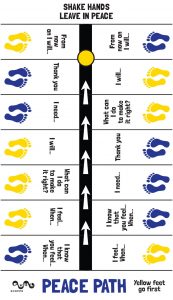
Peace Paths can be painted at cohort elementary school sites. Peace Path training is available for students and/or staff. Contact your site team consultant to request a peace path painted at your site and/or schedule training. Workshop Length: 45 minutes
Trainer Christina Soto-Trinidad’s Favorite Workshop
10 Strategies for De-escalating Students’ Behaviors (Introductory)
Do you work with students who are triggered by something, and their behaviors escalate quickly? Do you find yourself caught off guard and unsure of what to do? What are current methods for de-escalating students’ behaviors? This workshop offers 10 effective strategies to help de-escalate students’ behaviors whether in the classroom or outside the classroom. Workshop Length: 45 minutes
Today’s Disconnected Students (Intermediate)
This workshop includes the need and benefits of adult-student relationships, how students are disconnected (often related to life events, trauma and chronic stress), challenges with disconnected students and discussion on how reaching these students. Workshop Length: 45 minutes
Connecting with Disconnected Students (Intermediate)
 Teachers are busier than ever. Yet more students arrive with challenging behaviors and are the ones who most need a caring adult. Educators spend so much time on students’ disruptive behaviors, little energy is left to reach them. This workshop features 8 to 12 strategies educators can use to take a few minutes here and there to invest in building relationships with disconnected students. Workshop Length: 1 hour
Teachers are busier than ever. Yet more students arrive with challenging behaviors and are the ones who most need a caring adult. Educators spend so much time on students’ disruptive behaviors, little energy is left to reach them. This workshop features 8 to 12 strategies educators can use to take a few minutes here and there to invest in building relationships with disconnected students. Workshop Length: 1 hour
More Effective Guidance Techniques (Intermediate)
Many staff that work with students are frustrated with discipline challenges. This workshop begins by answering two questions that will improve guidance and decrease frustration. What doesn’t work or is inappropriate when guiding children or teens?
After reviewing the Seven Guidance Techniques, educators will learn three more effective guidance techniques: ignoring; offering choices; and natural consequences. The workshop culminates with discussion focus on connecting guidance challenges with techniques that work. Pre-requisite: Seven Effective Guidance Techniques for Yard Supervisors or Campus Supervisors. Workshop Length: 1 hour
Social Emotional Learning & Restorative Practices (Advanced)
![]() This workshop begins by introducing the five Social and Emotional Learning Core Competencies. Common Characteristics of Social-Emotional Learning (SEL) and RP provide the foundation of the workshop. We’ll look at how SEL Supports the Development of RP and vice versa. We’ll also consider implementing SEL and RP together using schoolwide strategies. Participants will experience both a SEL and RP activity that builds skills. Small groups and discussion included. Workshop Length: 1 hour
This workshop begins by introducing the five Social and Emotional Learning Core Competencies. Common Characteristics of Social-Emotional Learning (SEL) and RP provide the foundation of the workshop. We’ll look at how SEL Supports the Development of RP and vice versa. We’ll also consider implementing SEL and RP together using schoolwide strategies. Participants will experience both a SEL and RP activity that builds skills. Small groups and discussion included. Workshop Length: 1 hour
Special Needs & Restorative Practices (Advanced)
Special Education students are part of the school community, and they matter. Restorative practices in schools can improve and support the practices of special education teachers, staff, and school counselors. Exploring the RP intersection is Important for inclusion. We’ll begin with looking at the RP basics that are required for a chance of success. Special needs students can gain essential social skills with restorative practices. We’ll end the workshop by adapting restorative questions for special needs students. Workshop Length: 1 hour
Trainer Sam Tallon’s Favorite Workshop
The Trauma Sensitive Educator (Advanced)
 In this 45-minute to 1-hour workshop, start the process of incorporating knowledge of trauma and brain changes to your curricular considerations. Spend time learning about trauma processes in the brain, learning and memory impact, and study about small adjustments in teaching that can have a big impact in the effectiveness of leading a class with students under intense stressors.
In this 45-minute to 1-hour workshop, start the process of incorporating knowledge of trauma and brain changes to your curricular considerations. Spend time learning about trauma processes in the brain, learning and memory impact, and study about small adjustments in teaching that can have a big impact in the effectiveness of leading a class with students under intense stressors.
WORKSHOPS FOR PARENTS/CAREGIVERS
NEW Dodging the Power-Struggle Trap for Parents (Introductory)
Does this sound familiar? You ask you child or teen to do something, and it ends with opposition, aggression, or apathy to your request? Power struggles typically do not end well. They create distance and hostility instead of closeness and trust. Where do power struggles come from and what are our kids trying to achieve?
In this workshop, parents/caregivers learn specific strategies to respond to challenging behavior in a way that is intended to prevent escalation and conflict of power, techniques to deescalate power struggles including restorative practices techniques, and how we can transform power struggles, so our kids learn important life skills including self-discipline, responsibility, cooperation, and problem-solving skills. Workshop Length: 1 hour
NEW Restorative Parenting: Building Stronger Relationships with Your Children or Teens (Introductory)
 Your student’s school is using Restorative Practices as an alternative to punitive discipline. How can you use these strategies at home? Parents/caregivers will understand the basics of Restorative Practices and how and why to incorporate them into their parenting. Through practice and discussion, parents/caregivers will learn skills through a Restorative Practices lens. These include the social discipline window, the use of affective statements and restorative conversations to promote accountability and repair of harm for both children/teens and parents/caregivers. Workshop Length: 1 hour
Your student’s school is using Restorative Practices as an alternative to punitive discipline. How can you use these strategies at home? Parents/caregivers will understand the basics of Restorative Practices and how and why to incorporate them into their parenting. Through practice and discussion, parents/caregivers will learn skills through a Restorative Practices lens. These include the social discipline window, the use of affective statements and restorative conversations to promote accountability and repair of harm for both children/teens and parents/caregivers. Workshop Length: 1 hour
NEW Helping Kids (or Teens) Change Their Behavior (Intermediate)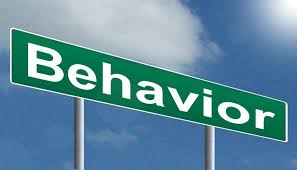
Restorative practices are based on the fundamental belief that our children (or teens) are the happiest, healthiest and most likely to make positive changes in their behavior when parents/caregivers do things with them rather than to them or for them. [iirp.edu]
Based on the social engagement window, parents will discover where their parenting style lies on the four quadrants: To, Not, For and With. When parents/caregivers implement discipline using this framework, the results for children’s behaviors are surprising. An overview of the quadrants and styles, video clip, and a reflective circle make this workshop engaging and practical for parents/caregivers. Workshop Length: 45 minutes.
Restorative Practices in Schools (Introductory)
See description in educators’ section. Available in Spanish.
Restorative Practices and the Home School Connection (Introductory) Elementary
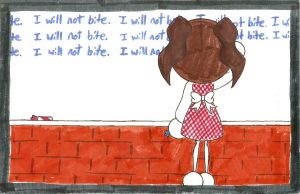 Have you heard about the school-to-prison pipeline? Are you concerned with the number of students suspended from schools? This workshop begins by addressing school discipline concerns and explains why punishment doesn’t work. The school discipline change features a shift from rules and punishment to relationships and restorative approaches. Parents/caregivers will role play restorative questions that are used at school and can easily be used at home. Available in Spanish. Workshop Length: 1 hour
Have you heard about the school-to-prison pipeline? Are you concerned with the number of students suspended from schools? This workshop begins by addressing school discipline concerns and explains why punishment doesn’t work. The school discipline change features a shift from rules and punishment to relationships and restorative approaches. Parents/caregivers will role play restorative questions that are used at school and can easily be used at home. Available in Spanish. Workshop Length: 1 hour
Restorative Practices and the Home School Connection (Introductory) Secondary
This workshop introduces parents/caregivers to changes in school discipline at their students’ school site. Parents/caregivers will learn why punishment doesn’t work for many students and how changing our questions about adolescents’ misbehavior shifts from breaking rules to repairing relationships. Parents/caregivers will role play restorative questions that are used at school and can easily be used at home. Available in Spanish. Workshop Length: 1 hour
Beyond Saying Sorry: Using Restorative Apologies with Your Children (K-6th) or Teens (7th-12th Grades) (Intermediate)
 Do you know that some apologies can cause more harm than help? Do you know why these types of apologies are ineffective? In this workshop parents/caregivers will connect restorative questions with potential apologies. Rather than just saying, “I’m sorry,” which is often not genuine, parents/caregivers learn how to help their children make a full apology. Full apologies usually have four parts: past, present, future, and forgiveness. The 4-part model is easy to learn and use at home. Available in Spanish. Pre-requisite: RP and the Home School Connection: Elementary or Secondary. Workshop Length: 1 hour
Do you know that some apologies can cause more harm than help? Do you know why these types of apologies are ineffective? In this workshop parents/caregivers will connect restorative questions with potential apologies. Rather than just saying, “I’m sorry,” which is often not genuine, parents/caregivers learn how to help their children make a full apology. Full apologies usually have four parts: past, present, future, and forgiveness. The 4-part model is easy to learn and use at home. Available in Spanish. Pre-requisite: RP and the Home School Connection: Elementary or Secondary. Workshop Length: 1 hour
WORKSHOPS FOR STUDENTS
-
Introduction to Restorative Practices
-
The Power of Affective Statements
-
Introduction to Restorative Questions: Elementary or Secondary
-
Restorative Apologies, Beyond Just Sorry: Elementary or Secondary
-
Introduction to Restorative Peer Mediators (Pilot Program)
-
Peace Paths: Elementary Restorative Peer Mediators
Comprehensive Training
Year 1: The Foundation of Restorative Practices in Schools
Brochure Restorative Practices in Schools Year 1 Rev Jan 18 2023
Year 2: Leading Change with Confidence
Year 3: Continuity, Collaboration, and Community
Brochure RP 5 Year Training Overview Rev 1 27 2023
Participant Materials
If you are enrolled in Dr. Marian’s Restorative Practices course, click here to access the participant materials. Note that this page is password-protected.
Quotes & Videos
“Releasing teachers from their classrooms for professional development can be delicate. If they are going to spend the time, they want it to be relevant, engaging, delivered by competent trainers, and include some practical take-aways they can apply in their classrooms the next day. All of these were true of the Restorative Practices training provided to MCS by Youth For Christ. It has been a valuable experience that I would not hesitate to repeat. Positive approaches to student discipline are critical pieces in changing schools and communities. I can think of few training topics that hit so close to the core of having the potential to change the educational trajectory of our youth.”
— Mike Henderson, Assistant Superintendent, Modesto City Schools
Restorative Practices Seminar, Day 1: Introduction, Dr. Marian Fritzemeier, Ed.D.
“When the District decided to begin training our sites on Restorative Practices, it was important we found a contractor who was knowledgeable, engaging, and able to persuade our staff to see the importance of using an alternative approach to school discipline. Youth for Christ exceeded our expectations in all of these areas. Their trainings were of top quality, activity-oriented, and they used a collaborative coaching model to assist our sites in moving forward. I would highly recommend contracting with Youth for Christ to any District interested in implementing Restorative Practice.”
— Mark Herbst, Associate Superintendent, Modesto City Schools
Restorative Practices: Innovators for Change, Dr. Marian Fritzemeier, Ed.D.
Restorative Justice and Cheating College Students, Dr. Marian Fritzemeier, Ed.D.
Image Sources: storytelling-child-clip-art [FAVPNG]; Prismatic-Handprint-Circle-2 [freesvg.org]; Stick-people-holding-hands-clipart-niE4E5BiA [common.wikimedia.org]; decision-making [publicdomainpictures.net]; reading [openclipart.org]; problem-solution 98377 [Pixabay.com]; mindfulness-5172637_1280 [Pixabay.com]; Vision_of_Eyechart_With_Glasses [commons.wikimedia.org]; back-to-school-tree-with-education-vector-clipart gg58495449 [gograph.com]; Learning Graduation Study of [MaxPixel.net]; Incredible_succulents_pt_2._(14857217026) [commons.wikimedia.org]; boy-153853_1280 [needpix.com]; hand leg repair finger broken cross medicine [PxHere.com]; self-care-2904778 umbrella protection [Pixabay.com]; Sorry 235731069 [Flckr.com]; Modesto City Schools Logo [academicsurplus.com]; Cartoon Speech Bubble Clip Art [ux.stockexchange.com]; agreement [thebluediamondgallery.com]; Social Engagement Window [adapted Paul McCold & Ted Watchel, 2001]; goats-competition-dispute [Pixabay.com]; that-way-1496856 [freeimages.com]; Stick_figure_choice [commons.wikimedia.org]; Gnome-face-angry [commons.wikimedia.org]; conversation-dialogue [Pixabay.com]; white-lions-tug-o-war [publicdomainpictures.net]; 219884 Family-Picnic-Silhouette [openclipart.org]; behavior [picserver.com]; school punishment [eddie_grrl.deviantart.com]; discipline [Flickr.com]; sorry-dog-text 13630 [Pixabay.com]

